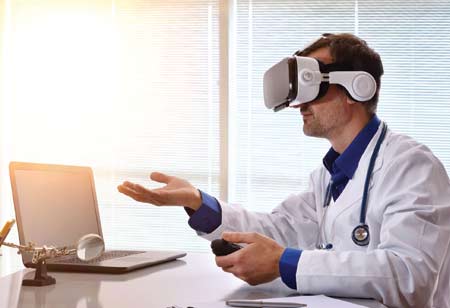Thank you for Subscribing to Healthcare Business Review Weekly Brief
Be first to read the latest tech news, Industry Leader's Insights, and CIO interviews of medium and large enterprises exclusively from Healthcare Business Review
Innovation Meets Compassion in Hospital Sitter Care
While vital for life-saving purposes, hospitals frequently evoke feelings of anxiety among patients due to the unfamiliar environment, medical procedures, and uncertainty about outcomes.

By
Healthcare Business Review | Friday, February 09, 2024
Stay ahead of the industry with exclusive feature stories on the top companies, expert insights and the latest news delivered straight to your inbox. Subscribe today.
Hospital sitters offer emotional support, reduce stress, improve communication, promote better sleep quality, reduce anxiety, and enhance treatment adherence, ultimately enhancing patient satisfaction.
FREMONT, CA: While vital for life-saving purposes, hospitals frequently evoke feelings of anxiety among patients due to the unfamiliar environment, medical procedures, and uncertainty about outcomes. This heightened anxiety can significantly compromise patients' sense of security and well-being, consequently impeding their recovery process. To effectively mitigate these challenges, a comprehensive strategy is necessary. Yet, one aspect frequently underestimated but holding significant value is hospital sitters' presence and support.
The Power of Companionship and Emotional Support
Hospital sitters play a multifaceted role that extends beyond caregiving, encompassing patient companionship and emotional support. Their presence is a crucial source of security and connection, mitigating feelings of isolation and loneliness. This contributes to lowered anxiety and stress, demonstrating the positive impact of familiar companions during medical procedures on anxiety reduction and enhanced pain tolerance, and also facilitates improved communication. Acting as liaisons between patients and medical staff, sitters ensure clarity and understanding of medical procedures and diagnoses. Additionally, the calming influence of sitters fosters a conducive environment for better sleep quality, aiding patients in relaxation and promoting expedited healing. Furthermore, the social interaction provided by hospital sitters plays a pivotal role in diminishing depression, addressing the pervasive sense of isolation and hopelessness often associated with hospitalized patients.
Maintaining a positive mental state is not merely a subjective notion of well-being; instead, it emerges as a pivotal determinant in recovery. Substantive research underscores that individuals exhibiting lower levels of anxiety and depression are inclined to realize several beneficial outcomes during their healthcare journey.






